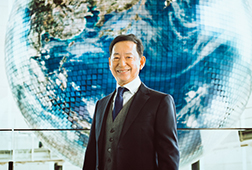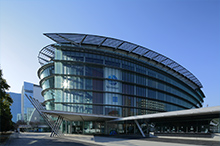ABOUT SCWS2017
- Official name
- Science Centre World Summit 2017 (SCWS2017)
- Period
- 15 to 17 November, 2017 (Wed. - Fri.)
*Prior to SCWS2017, the CEO Forum will be convened on Tuesday, 14 November, 2017 with attendance limited to current CEOs of science centres/museums. - Venue
- Miraikan (2-3-6 Aomi, Koto-ku, Tokyo, Japan)
http://www.miraikan.jst.go.jp/en/ - Participants
- 828 participants(98 countries and regions)
- Attendance Fee (Consumption tax included)
-
Early Bird (on or before 15 Jul., 2017) JPY75,000
Advance Rate (16 Jul. to 15 Oct., 2017) JPY85,000
Onsite Rate (16 Oct. to 27 Oct., 2017 and Onsite) JPY95,000
Note: Special rates for students and residents of low-GNI Nations are available. Please check below for more details.
https://scws2017.org/registration/ - Language
- English (Some sessions will have English/Japanese simultaneous interpretation.)
- Organiser
- Miraikan - The National Museum of Emerging Science and Innovation
- Co-organiser
- Ministry of Education, Culture, Sports, Science and Technology -Japan
- Programme Organiser
- Sponsors
-
- In association with
- Cabinet Office, Government of Japan, Ministry of Foreign Affairs of Japan, Ministry of the Environment, Science Council of Japan, The Japan Society for the Promotion of Science, The Japan Foundation, KEIDANREN (Japan Business Federation)
American Association for the Advancement of Science (AAAS), EuroScience, United Nations University
Background
What is SCWS?
The Science Centre World Summit (SCWS) is a global meeting of professionals of science centres/museums and their networks from around the world, convened once every three years.
The first Summit met in Belgium, as a representative of European countries, at Technopolis® in 2014 and resulted in the Mechelen Declaration which is the action plan for the international science centre field and their partners commit to concrete actions toward the enhancement of public engagement for a better world. In carrying on the Mechelen Declaration, the second Summit was held in Japan, representing countries in the Asia and Pacific region, at Miraikan in 2017.
Global issues have arisen that concern us all. Collaboration amongst all stakeholders is crucial for humans’ welfare and prosperity.
The SCWS2017 offered an opportunity for science centres / museums to discuss their strategies for their new roles in society. At this Summit, representatives of participating science centres / museums had discussions with scientists and educators as well as other stakeholders in society, including policymakers, international institution, industry and citizens communities, and build varied partnerships to create new approaches to global issues followed by concrete actions.
Theme & Topics
Theme of SCWS2017
“ Connecting the World for a Sustainable Future ”
Topics
- 1. Global Sustainability
- Science centres are, and aspire to be hubs connecting all entities in society, encompassing perspectives to find creative and collective solutions to achieve sustainable societies. SCWS 2017 provides opportunities to discuss the contribution of science centres to “sustainability” in all its forms in terms of local, regional and global challenges. Participants will share, collaborate, and co-create unique solutions to achieve goals.
- 2. Co-design for Transformation
- Society needs to transform/evolve to address global sustainability. Science centres endeavor to encourage citizens and all society to partake in co-design to create and incorporate shared visions. SCWS 2017 activates institutional discussions, involves all sectors, and harvests the collective intelligence of research organizations, businesses, the arts, education, policy makers and citizens on how to best collaborate to achieve goals.
- 3. Personal Engagement with Science
- Science centres need to further incorporate personal engagement to transform attitudes and behaviors to global challenges as science and technology changes at astonishing speed. SCWS 2017 discusses how science centres can encourage a progressive, personal process that will enhance a centre’s mission and generate new approaches towards personal transformation of all members of society.
Message from the chair
- SCWS2017 brings together all areas of society creating innovative working relationships instrumental to SCWS’s continued evolution.
- SCWS2017 collaborates with all of Asia to enhance the world summit experience now and into the future.
- SCWS2017 shares Miraikan’s TSUNAGARI - helping each individual discover a personal relationship with Earth, what can be done to sustain Earth, and thus sustain our species.
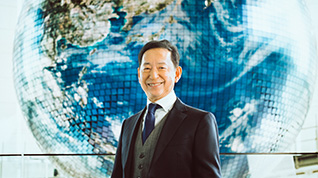
Message from the chair
and TSUNAGARI
Message from Mamoru Mohri,
Chief Executive Director of Miraikan
(host of the SCWS2017)
SCWS2017 Honour Committee
The Honour Committee is a patronage group consisting of world representatives from a wide variety of expertise who will contribute to the success of the SCWS 2017.
The members of the Honour Committee will suggest or approach personalities that will help build new partnerships, connect key players and the science centre field, or disseminate the Summit’s message to the world.
- Dr. Rob Adam
- Director, The Square Kilometre Array (SKA)
- Dr. Peter Agre
- Nobel Laureate in Chemistry (2003)/Bloomberg Distinguished Professor/Director, Johns Hopkins Malaria Research Institute, Johns Hopkins Bloomberg School of Public Health
- Mr. Tadao Ando
- Architect/Emeritus Professor, The University of Tokyo
-
Although our Earth has limited food, energy, and resources the global population never stops expanding. The center of the civilization is constantly fluctuating in location. It has moved from Europe to America, and has recently shifted to Asia where an overwhelming amount of people are living. If the entire population of Asia required the same lifestyle as westerners, could you imagine the environmental consequences for the Earth? Every individual has a responsibility to cultivate their power of knowledge and power of thinking, to address the topic of co-existing with the natural environment and creating a sustainable future for the Earth. I wish for SCWS2017 to be the good opportunity to facilitate these positive actions.
*Photo by Keitaku Hayashi - Dr. Yuichiro Anzai
- President, Japan Society for the Promotion of Science
-
The ingenious knowledge created by researchers has contributed to the development and continued prosperity of human society. Plus, addressing social problems using the assembled knowledge generated by various stakeholders is truly one of the intellectual human activities.
The collaboration beyond fields is crucial in approaching complicated global issues. I wish SCWS2017 will be the place where the representatives from many fields offer their knowledge and together discuss and create solutions. - Ms. Irina Bokova
- Director-General, United Nations Educational, Scientific and Cultural Organization (UNESCO)
- Dr. Ana María Cetto
- Director, Museum of the Light UNAM
- Dr. Franklin Chang-Diaz
- Astronaut/CEO, Ad Astra Rocket Company
- Dr. Cheng Donghong
- Vice President, China Association for Science and Technology (CAST)/President, Chinese Association of Natural Science Museums (CANSM)
- Prof. Anusuya Chinsamy-Turan
- Palaeobiologist, University of Cape Town/TWAS 2013 winner of sub-Saharan Africa Prize for Public Understanding and Popularization of Science
- Dr. E. William Colglazier
- Editor-in-Chief of Science & Diplomacy and Senior Scholar in the Center for Science Diplomacy, American Association for Advancement of Science (AAAS)
- Prof. Farouk El-Baz
- Director, Center for Remote Sensing, Boston University
- Dr. Fabiola Gianotti
- Director- General, CERN
- HRH Princess Sumaya bint El Hassan
- President, The Royal Scientific Society, Jordan
- Mr. Tamaki Imai
- Chairman, NHK Symphony Orchestra, Tokyo
- In recent situations where social and economic problems are complexly related, it is essential to have deep discussions amongst various stakeholders based on a scientific perspective for the establishment of sustainable future. To accomplish this, it is crucial that communication should be worldwide, addressing a wide age and professional range to alert for problems. The arts, and music should be a major motivation in those communications.
Through SCWS2017, I hope the stakeholders are stimulated, discussions and partnerships will flourish, and actions will eventually lead to the first step towards a sustainable future. - Mr. Kazuhiko Ishimura
- Chairman, The Asahi Glass Foundation
- Dr. Mae Jemison
- Founder, The Jemison Group, Inc./Astronaut/Physician/Engineer
- Mr. Shuji Kanoh
- Chairman and Representative Director, Fuji Media Holdings, Inc.
- Mr. Tsuneo Kita
- Chairman and group CEO, Nikkei Inc.
- Dr. Alan I. Leshner
- CEO Emeritus, American Association for the Advancement of Science (AAAS)
- Prof. Low Teck Seng
- CEO, National Research Foundation, Prime Minister’s Office of Singapore
- The National Research Foundation’s aim is to strengthen the connection between academic research and industry, so that our R & D capabilities can be translated into solutions that have direct relevance in addressing national and global needs.
To address sustainability challenges, our efforts include investing in R & D for sustainable smart cities; and addressing some key global issues from the perspective of a small island state. - Prof. Barry Marshall
- Nobel Laureate in Physiology or Medicine (2005)/The University of Western Australia
- In a time when science and technology is changing the world at an unprecedented pace, science centre's enable communities to access and engage with these developments directly. They offer a way for teachers to feel confident about motivating and teaching students and a setting for families to explore and learn together. The Science Centre World Summit 2017 creates a shared learning environment where our science centre leaders, scientists and business leaders can connect, discuss and share ideas to grow science engagement and ensure sustainable prosperity for our communities.
- Prof. Gordon McBean
- President, International Council for Science
- The International Council for Science, with its Mission of strengthening international science for the benefit of all societies, is pleased to participate in the Science Centre World Summit 2017 which is an opportunity to promote dialogue between the scientific community, policy makers and societies. Future Earth, initiated by the Council, is co-designing the transformations for a globally sustainable future.
- Mr. Zenji Miura
- Corporate Executive Advisor, Ricoh Company, Ltd.
- Earth faces the challenges of environmental issues, disputes and poverty. To solve these challenges towards sustainability of Earth is the crucial for all humans. Thus, industry must go beyond financial concerns to develop and advance human resources and innovation. We must act responsibly and provide concrete solutions for those challenges. I expect intense discussions among members from various fields at SCWS2017 that will help industry prepare to better contribute to society.
- Mr. Issey Miyake
- Designer, MIYAKE DESIGN STUDIO
- The culture provides unique, universal languages through which all humans can communicate. Embracing the arts and design medium can enhance science and technology communication and touch all areas of society, which is essential to assure our home, our Earth’s sustainability.
I look forward to experiencing a wide range of collaboration in SCWS2017. - Dr. Phil Mjwara
- Director General, the Department of Science and Technology - DST
- Ms. Yoshiko Mori
- Chairperson, Mori Art Museum
- Museums are places for visitors to enjoy stimulating exhibitions as well as forums for engaging in free discussions with persons of diverse ages, backgrounds and nationalities over a wide range of social issues as seen through the works on display. Whilst both advanced science and art are reflections of the times, they mutually inspire each other toward ever newer developments. We believe this SCWS2017 partnership will enliven and enrich the functions of museums as well as contribute to the solution of the many global tasks at hand.
- Dr. Takashi Onishi
- Immediate Past President, Science Council of Japan
- Japanese Scientists are frequently awarded Nobel Prizes these days, so society’s interest and expectations for science and technology are growing. In this positive environment for the sciences, it is my hope that middle and high school students put more efforts into the study of the sciences including space, earth, life and society. The science centre/museum is a venue that introduces science from diverse perspectives and thus stimulates people’s, and in particular, the youth’s curiosity. I look forward to the continued, important success of science centres and of SCWS2017.
- Dr. Mazlan Othman
- Council Member, Academy of Sciences Malaysia/Former Head, United Nations Office for Outer Space Affairs (UNOOSA) from 1999-2002 and 2007-2013/Founding Director General for the National Space Agency of Malaysia
- Sir Roger Penrose, O.M., F.R.S
- Emeritus Rouse Ball Professor, Mathematics at the Mathematical Institute of the University of Oxford/ Emeritus Fellow, Wadham College
- Science and technology are affecting our world at an increasing pace. It is vital for us to stand back and take stock of the implications of many of these developments and to try to understand how those in many seemingly disparate areas may affect one another and influence the future of human society. The Science Centre World Summit provides an important forum for the bringing together of different organizations concerned with scientific developments and their technological implications.
- Dr. Eduardo Posada
- President, Colombian Association for the Advancement of Science (ACAC)
- Dr. María Teresa Ruiz
- Director, Centre for Astrophysics and Associated Technologies (CATA), University of Chile
- Dr. Sadayuki Sakakibara
- Chairman, Keidanren/Senior Advisor, Toray Industries, Inc.
- In this globalized and networked era, the world faces transformations of industrial and social structures, and global issues like climate change and resources/energy scarcity. We, the business community, will contribute to solutions through development and popularization of innovative technologies.
Through the discussions in SCWS2017, we expect all the stakeholders such as the business sector, science centres/museums, research institutions, government and NGOs/NPOs, will share future visions and establish connections. Establishing those connections shall be the first step to steadily, and surely creating a bright future. - Prof. Brian Schmidt
- Nobel Laureate in Physics (2011)/Vice-Chancellor, The Australian National University
- Human curiosity has been the great driving force in the development of science, and technology based on scientific discovery has impacted life in a tremendous way. In this new era, science and technology is expected to create innovative solutions to address the global challenges we all face. Through the collaboration among all stakeholders, new ways of discovering answers will be unveiled and science and technology will truly benefit all the humans. I believe this summit will be the place for science to flourish not only in the laboratory but also throughout society.
- Dr. Manju Sharma
- Former Secretary Department of Biotechnology Govt. of India/Former President, National Academy of Sciences India & President and Executive Director of Indian Institute of Advanced Research
- Dr. Hideki Shirakawa
- Nobel Laureate in Chemistry (2000)/Professor Emeritus, University of Tsukuba/Doctor of Engineering
- Mr. Chi-ming Shun
- President, Commission for Aeronautical Meteorology (CAeM) of World Meteorological Organization/Director, Hong Kong Observatory
- As the Paris Agreement entered into force on 4 November 2016, the world is determined to embark on a more sustainable path for the betterment of Mother Nature and humankind. Our goals will require science, innovation and partnership to achieve. It is high time for the science communities to come together at SCWS 2017 to turn our pledges into actions and to spread the message across nations and societies. On behalf of the Hong Kong Observatory and the world meteorological community, I am delighted to be part of this prestigious event.
- Dr. Hayat Sindi
- Founder and CEO, the Institute for Imagination and Ingenuity (i2 institute)
- Ms. Atsuko Toyama
- President, The Toyota Foundation/Former Minister, Education, Culture, Sports Science and Technology (2001-2003)
- We face worldwide issues such as global warming’s natural disasters, resources/energy issues and rapid IT development difficulties. Solutions come from the consolidation of opinions and policy decision-making at the community, local, and national governmental levels. All society benefits from discussions based upon the common foundation of the scientific viewpoint. I hope SCWS2017’s discussions among respected experts create answers for these challenges.
- Dr. Vaughan C. Turekian
- Science and Technology Adviser to the Secretary of State U.S. Department of State
- Prof. Shinya Yamanaka
- Nobel Laureate in Physiology or Medicine (2012)/Director of Center for iPS Cell Research and Application (CiRA), Kyoto University
- Prof. Hiroyuki Yoshikawa
- Chairman, The Japan Prize Foundation/Special Counselor to the President, Japan Science and Technology Agency/Doctor of Engineering
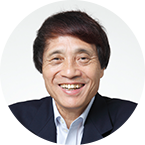
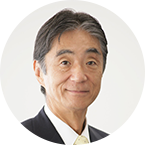
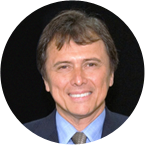
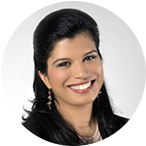
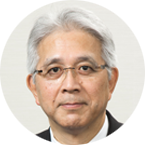
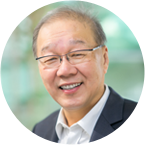
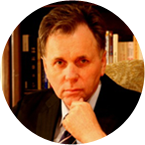
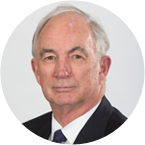
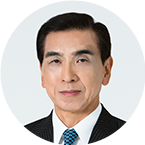
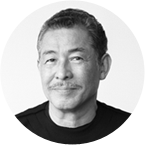
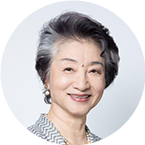
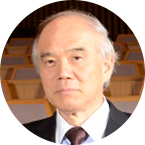
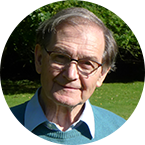
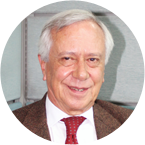
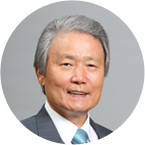
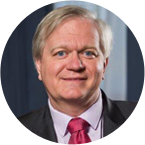
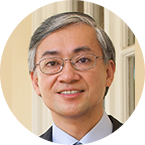
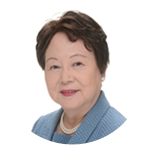
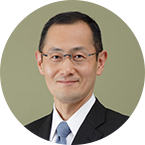
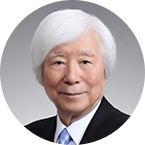
SCWS2017 International Programme Committee
- Chair
- Mamoru Mohri (Chief Executive Director, Miraikan, Japan)
- Previous Chair (SCWS2014)
- Erik Jacquemyn (International consultant, Jacquemyn & associates, Belgium)
- Next Chair (SCWS2020)
- Silvia Singer Sochet (CEO and General Director, MIDE Museo Interactivo de Economía, México)
- Committees
-
ASPAC (Asia Pacific Network of Science and Technology Centres)
Graham Durant (Director, Questacon, Australia)
A. S. Manekar (Director General, NCSM, India)
Wei Shu (Member of the leading Party members' group, Executive Secretary, CAST, China)
Chee-kuen Yip (Ex-officio Executive Director/IPC Representative, ASPAC, Hong Kong)
ASTC (Association of Science-Technology Centers)
Linda Conlon (Immediate Chair, ASTC/Chief Executive, International Centre for Life, United Kingdom)
Chevy Humphrey (The Hazel A. Hare President & CEO, Arizona Science Center, United States)
Walter Staveloz (Director of International Relations, ASTC, United States)
Ecsite (European network of science centres and museums)
Robert Firmhofer (Chief Executive Officer, Copernicus Science Centre, Poland)
Catherine Franche (Executive Director, Ecsite, Belgium)
Rosalia Vargas (President, Pavilion of Knowledge – Ciência Viva, Portugal)
NAMES (North Africa and Middle East Science centers network)
Sawsan Dalaq (President, NAMES; Director, the Children’s Museum Jordan, Jordan)
RedPOP (Network for the Popularization of Science and Technology in Latin America and the Caribbean)
Alejandra León Castellá (Executive Director CIENTEC Foundation, Costa Rica)
Jorge Padilla G. del C. (Immediate Past Chair, SOMEDICYT (the Mexican Society for Public Communication of Science and Technology), Mexico)
SAASTEC (Southern African Association of Science and Technology Centers)
Mondli Mnguni (Chairperson, SAASTEC, South Africa)
Ex-Officio
Tit Meng Lim (President, ASPAC/Chief Executive, Science Centre Singapore, Singapore)
About Venue
What is Miraikan?
Miraikan - The National Museum of Emerging Science and Innovation is a government owned national museum in Tokyo, Japan. Miraikan is where people can understand the things happening in our world today from a scientific point of view, and have discussions while considering the future that awaits us.
In addition to permanent and special exhibitions that provide people with a chance to experience science and technology, Miraikan offers science workshops and demonstrations performed by Science Communicators (SCs). SCs engage in dialogue with visitors and conduct all kinds of events involving various stakeholders especially scientific researchers. Miraikan inspires interest in relevant progress, from daily life to the latest technologies, community based advancement, global environment solutions, and space exploration development.






















